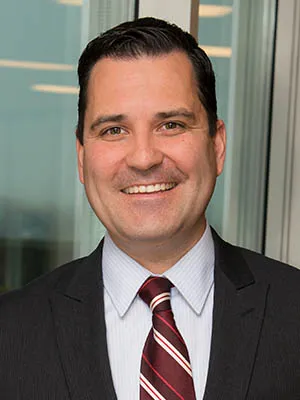
David Pallant
Academic Rank:
Associate Professor
Department:
English & Philosophy
School:
Liberal Arts
Office: DH 329
Phone: 973-328-5448
Email: dpallant@ccm.edu
Education: B.A., Communication, University of Massachusetts; M.A., Communication Arts, New York Institute of Technology
During the course of his career, Professor David Pallant has had an insider’s view into the rapidly shifting landscape of public relations and communications. He was a part of the advertising team at a major TV channel during its controversial rebranding. He worked with Google during the years it was developing the Android phone. And he was a staff member for the Howard Dean presidential campaign when it unleashed the power of the Internet as a political tool. Today Pallant, as a professor of public relations and speech, is focused on teaching students how to remain relevant in a world where change is the only certainty.While he has had an extensive and enjoyable career in public relations and communications, Pallant says teaching is his true passion.
“For me teaching is a giving profession focused on helping people,” he says. “Knowing that you have gotten through to a student and made an impact is the best reward.”
Pallant earned his bachelor’s degree in communications from the University of Massachusetts, Amherst, and his master’s in communication arts from New York Institute of Technology. It was at UMass, he said, that he first became interested in teaching.
“I had a really great communications teacher as an undergraduate who talked a lot about the new technology that was coming and it turned out to all be true,” says Pallant. “I want to be at the forefront of what is developing and I want to be able to share that with others.”
Along with remaining at the forefront of change, Pallant brings an extensive background in communications and public relations to the classroom.
He worked with MTV’s Spike TV as it was in the process of changing its name from TNN in the midst of a lawsuit filed by film director Spike Lee. He was a staff member of the Dean for America presidential campaign, which set the foundation for using social media for political fundraising and grassroots organizing. And he worked with Google as a video contractor assisting with its then-new acquisition – YouTube – while it was also developing the applications for the Android phone.
“The challenge today for communications professionals is that things now change so rapidly,” says Pallant. “Look at what happened with MySpace. One day it was the social network of choice, and then Facebook changed that. Five years from now, it is going to be something else.”
What he tries to stress to his students is that they need to develop strong writing and communications skills, learn how to analyze things on a micro level, and stay abreast of the changes that are coming to remain marketable.
“I try to expose them to what is new and trendy,” he says, “but most of all what I try to convey is that they have to develop a strong foundation in basic communications skills and they need to remain inquisitive about and open to the changes that are coming.”